Make My Trailer, Award-Winning Service 🏆 Trailer Dealer of the Year: More Than Just Low Prices. From stock units to custom builds, our enclosed trailers for sale come with strength, savings and a long-term peace of mind included.
Over 8000 Sold Trailers
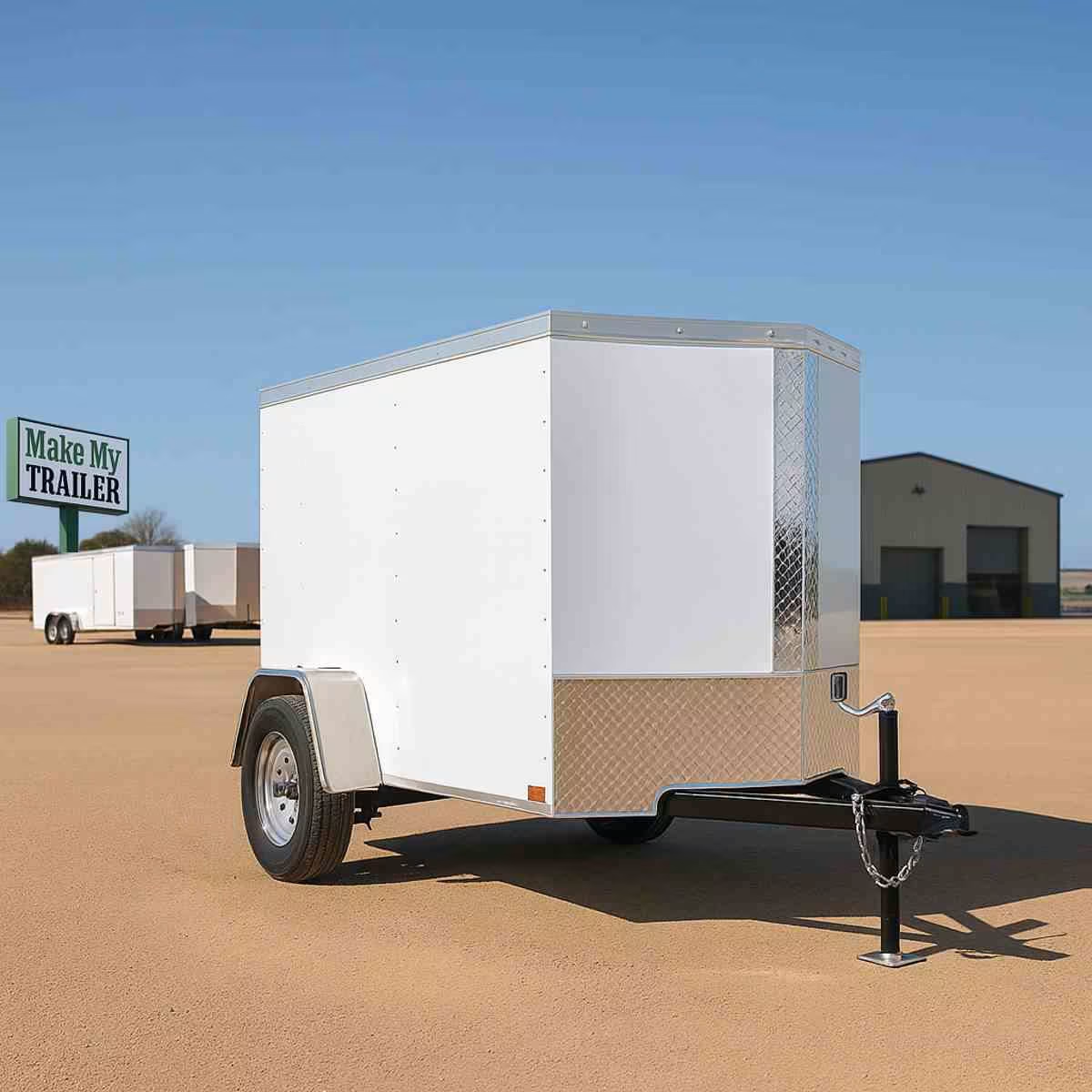
Compact power for tight spaces and quick hauls.
Available Sizes (4' Wide)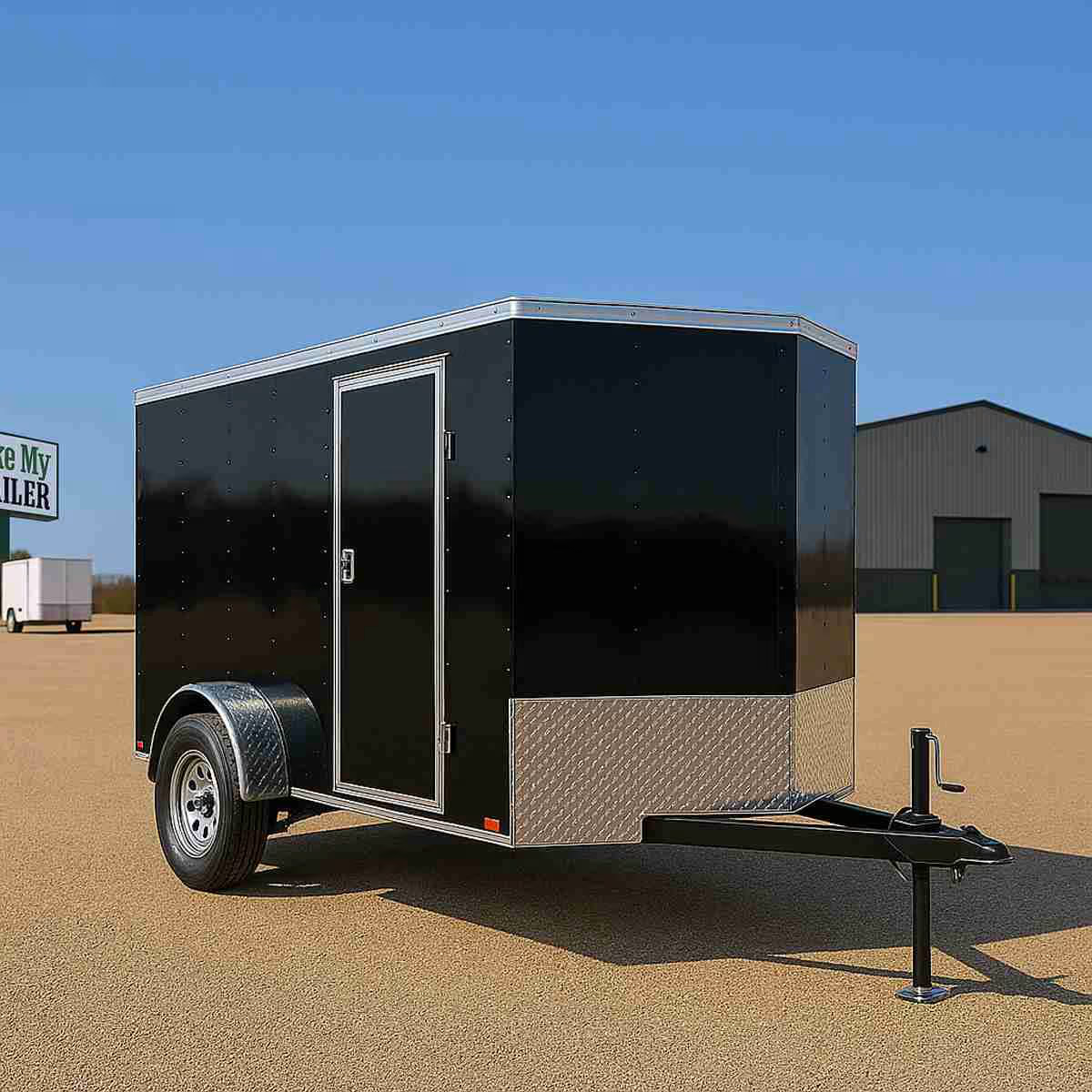
Small footprint, big hauling capability.
Available Sizes (5' Wide)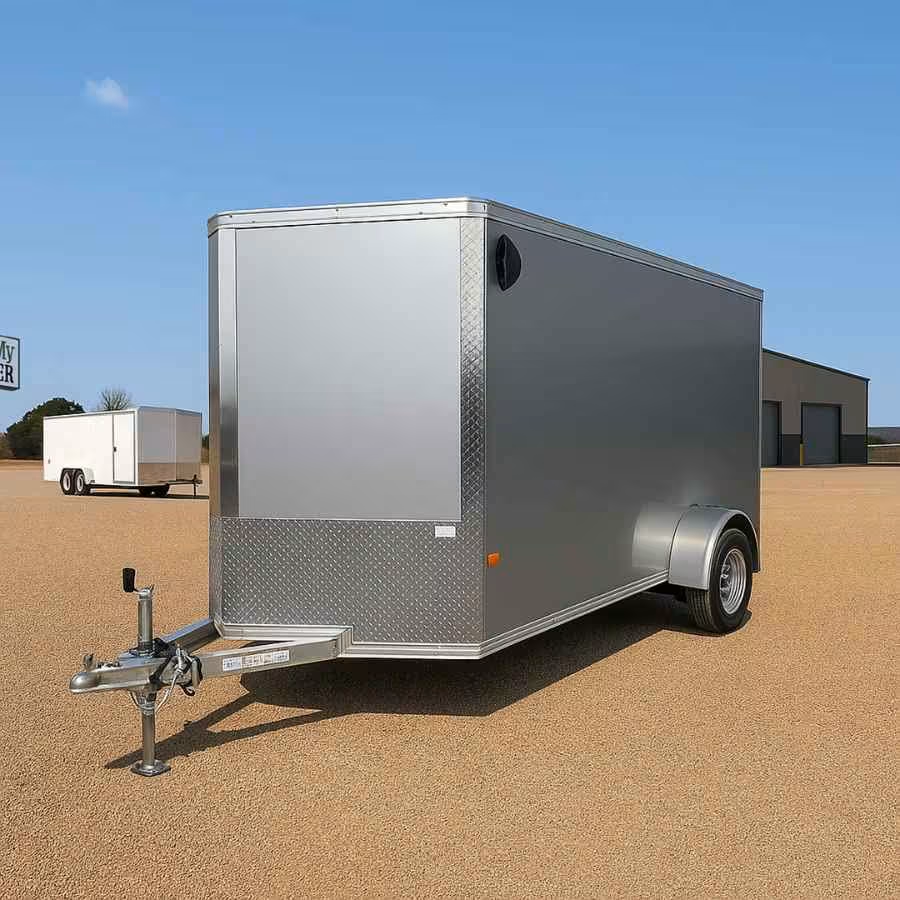
Versatile size for work, play, and everything in between.
Available Sizes (6' Wide)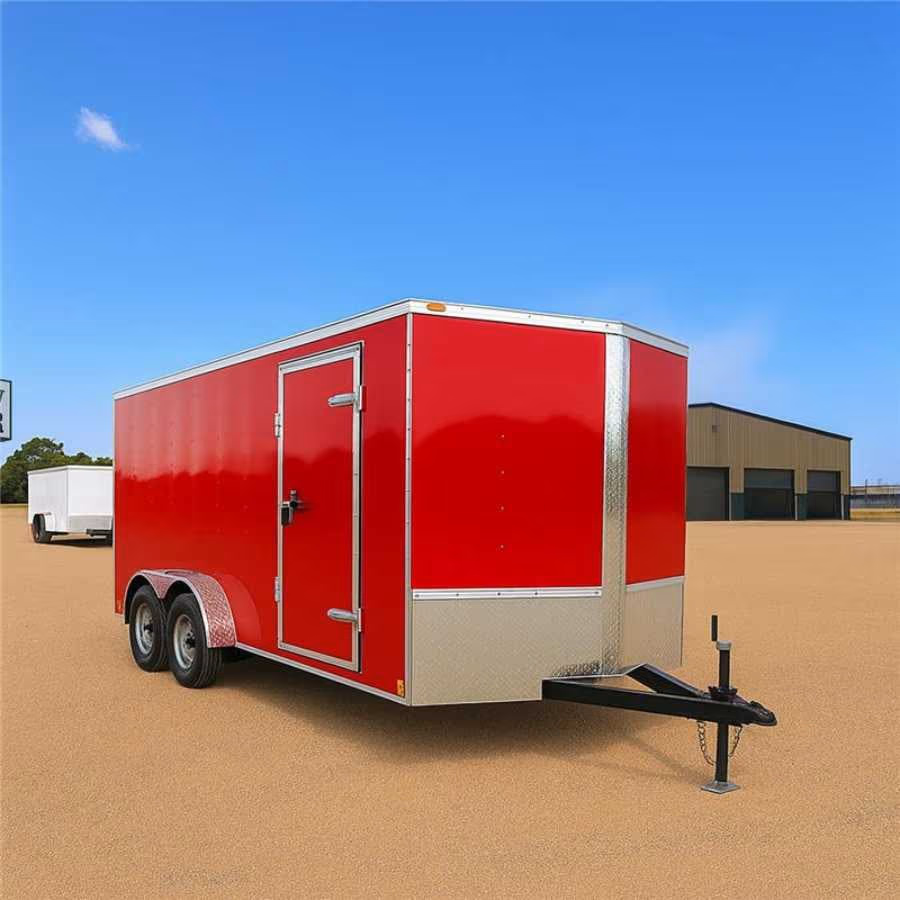
Spacious, stable, and built for serious jobs.
Available Sizes (7' Wide)
Maximum width for maximum capacity and performance.
Available Sizes (8.5' Wide)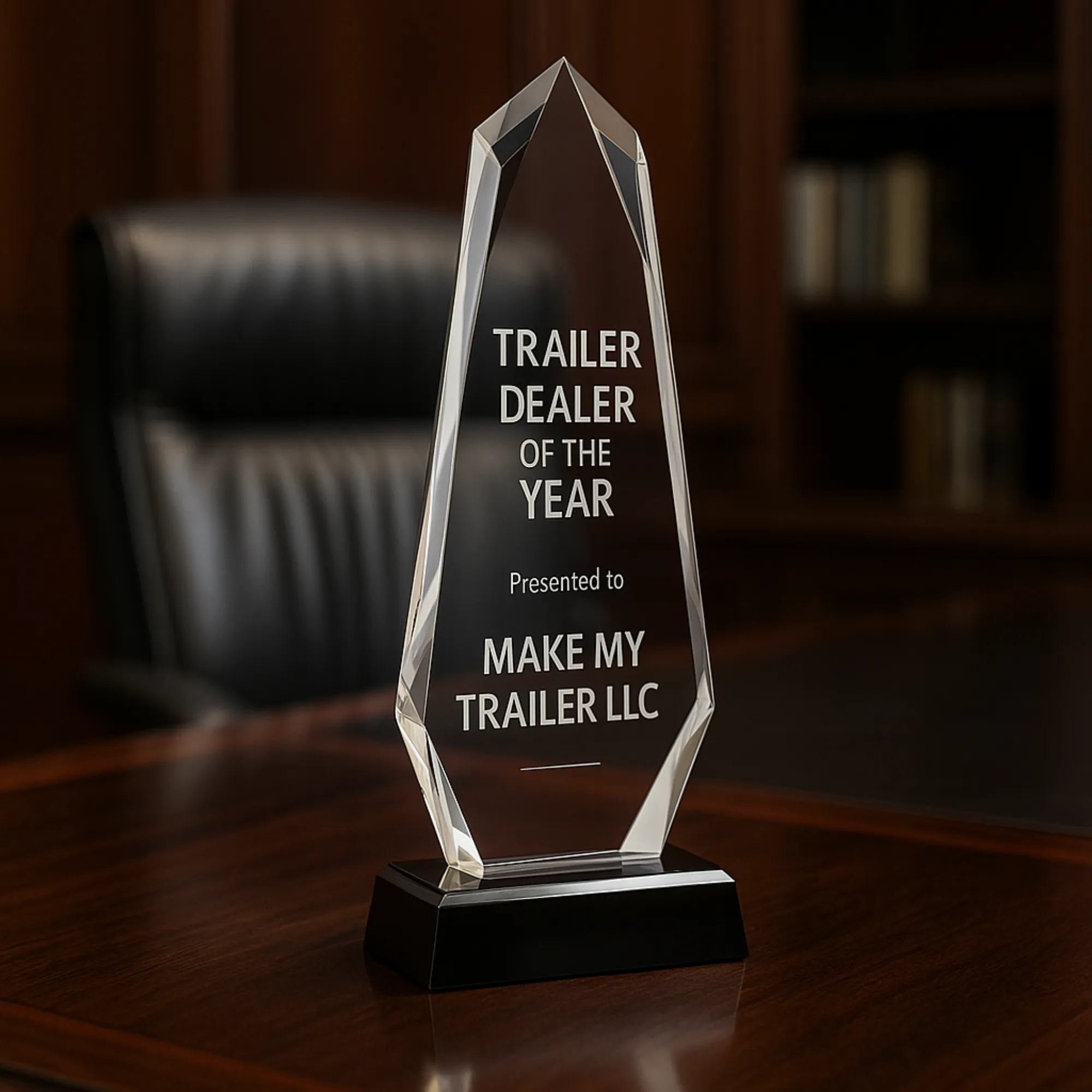
Award-Winning Service 🏆 Trailer Dealer of the Year

All our enclosed trailer sizes are discounted for the next 2 weeks
How do I get a quote?
Option #1:
Call Us and we’ll discuss your trailer needs: (912) 202-4732.
Option #2:
Text us your full name, email, and trailer preferences, and we’ll send your quote your away: (912) 202-4732.
Option #3:
Email us with your preferred trailer size and options, and we’ll respond with a detailed quote: Sales@MakeMyTrailer.com.
Option #4:
Create a quote using our system, just select the size trailer you’re interested in and follow the instructions: GET A QUOTE.
Once your quote is approved and the deposit is received, we’ll submit your order to our production team. They’ll review the details, confirm any options or special instructions with you, and then begin building your trailer.
The moment your trailer is ready, you’ll hear from us! We’ll send a confirmation email packed with all the details you need — from clear pick-up instructions to how to settle the remaining balance. We’ll also send you a quick text just in case the email slips by. And because we know you’re excited to see it, we’ll include photos of your finished trailer so you can get that first proud look before you even arrive.
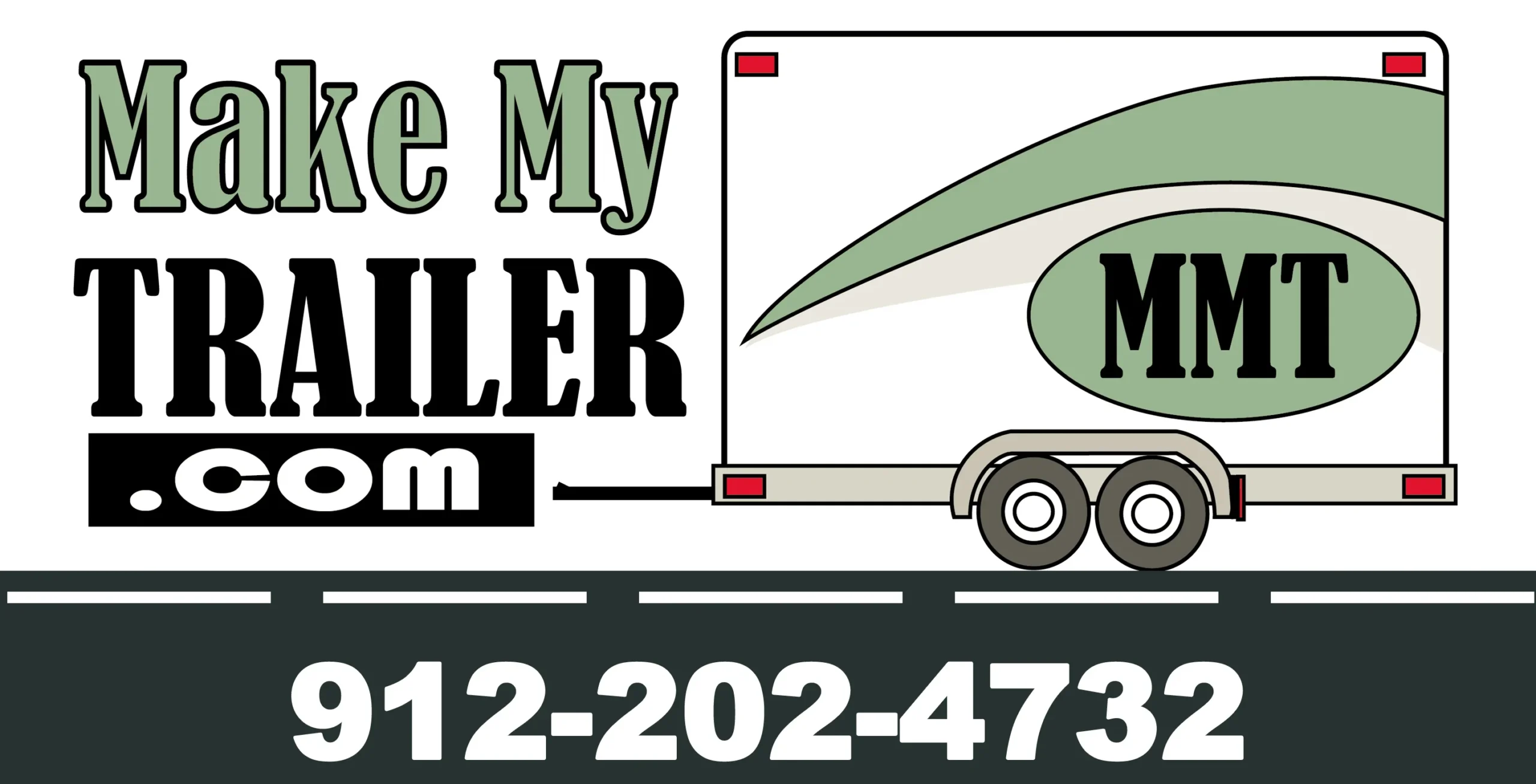
Looking for Another Size?
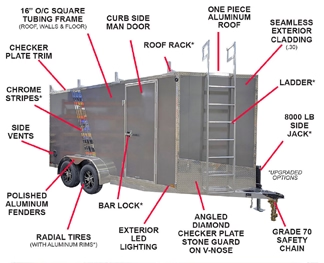
Buyers frequently ask whether to go for steel or aluminum construction, how skin thickness influences durability, and what to look for in floor cross-members, axle types, and other build components. These factors strongly shape purchase decisions.
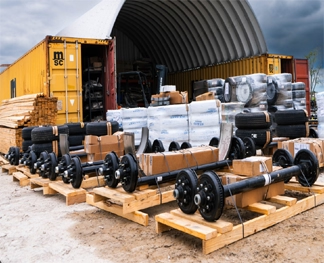
Determining the right trailer means considering size (width, length, height), axle type (single or tandem), roof style (flat or rounded), and door style (ramp or barn). Each choice affects capacity, durability, ease of loading, and long-term performance.
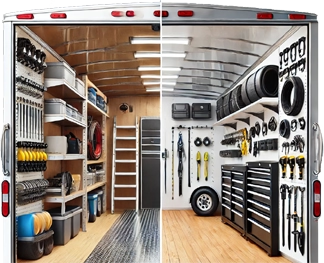
Many users explore how to tailor trailers to their needs—adding shelves, lighting, ventilation, flooring options, or branding wraps—and they often search for specific types such as car haulers, concession trailers, or mobile-business-ready units
Learn More About Enclosed Trailers
If you’re shopping for North Carolina enclosed trailers, you’re usually looking for two things at the same time: secure, weather-protected hauling and a trailer that matches your exact use (tools, inventory, motorcycles, UTVs, event gear, or general cargo). At Make My Trailer, you can buy factory-direct and choose the size, door style, axle/brake package, and upgrades you actually need—plus arrange delivery across North Carolina.
An enclosed trailer (often called an enclosed cargo trailer) gives you a locked, protected cargo box for hauling or storage. North Carolina buyers commonly choose enclosed trailers for:
Contractor tools and jobsite equipment
Small business inventory and deliveries
Moving and secure storage
Powersports setups (motorcycles, ATVs/UTVs—depending on dimensions)
Event, vendor, and concession gear
If you’re unsure where to start, a simple rule helps: pick your width first, then choose length based on what you’re loading now (and what you may load later).
Best for small loads, tight parking, and lighter tow vehicles. A common option is a compact build like a 4x6 enclosed cargo trailer:
Great for household hauling, light business use, and smaller gear. Popular picks include:
A top choice for contractors and growing businesses because it balances space with towability. Popular options:
Ideal if you want more usable interior width for equipment layouts, shelving, or frequent loading. Popular options:
When you need maximum width for larger equipment or serious commercial hauling, 8.5-wide builds are the go-to:
Want a quick way to compare all widths and use-cases? Start here:
Foot-Wide Enclosed Trailers.
The best enclosed trailer is the one that fits your cargo, your tow vehicle, and how often you load/unload. Here are the features NC buyers typically care about most:
Door style: ramp door vs barn doors (and a side entry door for convenience)
Front design: V-nose vs flat front (a V-nose can add usable front space and improve airflow)
Axles: single axle vs tandem axle (tandem is preferred for heavier loads and stability)
Brakes: electric brakes + breakaway system for added control (especially as weight increases)
Interior height: standard vs extra height if you’re loading taller equipment
Everyday usability upgrades: tie-down points, interior wall liner, roof vent, spare tire mount, lighting improvements
If you’re rolling items in/out (dollies, mowers, tool carts, bikes), a ramp door is typically the easiest solution. A side door keeps access simple when the trailer is packed.
A V-nose can give you extra “front corner” room for gear while keeping the trailer footprint similar.
If your load is heavier, you tow often, or you want improved tracking on the highway, tandem axle setups are usually the smarter long-term choice.
If you plan to add shelving, carry taller items, or want more headroom inside, extra height can make the trailer far more functional.
When ordering an enclosed trailer, weight isn’t just a number—it determines towing comfort, braking needs, and how much you can safely carry.
Use this quick approach:
List your cargo (and be honest about future growth).
Estimate your real loaded weight (cargo + accessories + any added interior buildout).
Choose a trailer rating that gives you breathing room—not a “barely enough” setup.
If you’re unsure, start with your cargo and tow vehicle details and we’ll help narrow the right size and axle/brake package.
We work with buyers across the state and can quote delivery based on your location. Common NC areas include Charlotte, Raleigh, Greensboro, Durham, Winston-Salem, Fayetteville, Wilmington, Asheville, and surrounding towns.
To learn how delivery works (and what impacts cost and timing), see:
Enclosed Trailer Delivery
Factory-direct buying is about getting the right trailer without paying for extra layers of markup. With Make My Trailer, you can:
Choose a configuration that matches your use case
Add practical upgrades that improve day-to-day ownership
Get clarity on options before you order
Buy with confidence backed by a 5-year warranty (when applicable to your build)
Start with width and length based on what you haul most often.
Door style, axles/brakes, V-nose, extra height, and accessories should all support your loading routine.
If you want monthly payments, start here:
Enclosed Trailer Financing: https://makemytrailer.com/enclosed-trailer-financing-services/
We’ll coordinate the simplest path to get your trailer where you need it.
Many buyers start with versatile mid-sizes like 6x12 or 7x14, then move up to 7x16 or 8.5-wide models when hauling larger equipment.
Ramp doors are best for rolling cargo and frequent loading. Barn doors can be ideal for simple access when you’re not rolling equipment in/out.
If your loads are heavier, you tow frequently, or you want more stability on the highway, tandem axles are usually the better choice.
GVWR is the maximum allowed total weight of the trailer and cargo. Choose a rating that covers your real-world load with room to spare.
Yes—delivery can be quoted across NC based on your location and trailer type. See delivery details here:
https://makemytrailer.com/enclosed-trailer-delivery/
Yes. Door types, axle/brake packages, height, and practical accessories can often be selected to match your needs.
Build time depends on size, options, and current production demand. Once your configuration is confirmed, we can provide an updated timeline.
Many builds include a 5-year warranty (depending on configuration). Ask for warranty details for the exact model you’re ordering.











Pickup Address:
91 Harvey Vickers Road, Douglas, GA, 31535